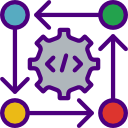Low-code development platforms are reshaping the digital landscape by enabling rapid, efficient application creation for businesses of all sizes. By minimizing the need for traditional coding, these platforms break down entry barriers, streamline processes, and foster agility. As organizations strive to innovate at unprecedented speeds, low-code solutions offer a pathway to digital transformation that’s accessible, scalable, and cost-effective. This approach empowers not just developers, but also business analysts and other stakeholders to contribute directly to application design, fundamentally changing the way software is envisioned and delivered.
Empowering Citizen Developers
Reducing Technical Barriers
Traditional software development often requires deep technical knowledge, which can limit participation to only trained programmers. Low-code platforms break down these barriers by providing intuitive, drag-and-drop interfaces that simplify complex coding tasks. This accessibility enables professionals from various backgrounds—such as marketing, operations, and customer service—to develop and iterate on applications. As a result, organizations benefit from a more diverse and inclusive approach to problem-solving, leading to innovation that directly reflects the needs and insights of end users.
Accelerating Digital Transformation
Low-code tools drastically reduce the time it takes to move from concept to production, allowing businesses to adapt rapidly to changing market demands. By streamlining development workflows and minimizing the need for manual coding, organizations can deploy new features and applications at an unprecedented pace. This agility is especially vital in today’s fast-moving business environment, where the ability to react quickly can make the difference between staying ahead or falling behind competitors. Low-code platforms thus serve as catalysts for digital transformation, bridging the gap between IT and business units.
Bridging the IT Skills Gap
The shortage of experienced developers is a significant challenge for many organizations. Low-code platforms address this issue by empowering non-technical staff to build and customize applications. This approach not only fades the lines between business and IT but also ensures that technology continues to advance even when access to specialized talent is limited. By training and supporting citizen developers, companies maintain momentum and drive innovation, regardless of hiring constraints or market shortages of technical professionals.


Unlocking Legacy Systems Potential
Many organizations rely on legacy systems that, while essential, may be difficult to update or integrate with modern applications. Low-code platforms bridge this divide by offering out-of-the-box connectors and APIs that simplify integration. Companies can enhance the functionality of their legacy systems without risky overhauls, extending their useful life while delivering new features. This approach maximizes return on existing technology investments and paves the way for gradual, controlled modernization.
Ensuring Data Consistency and Flow
Effective integration through low-code tools ensures the smooth flow of data between disparate systems, reducing duplication and errors. Centralized data management becomes easier, and teams gain real-time access to the information they need to make informed decisions. By breaking down silos, organizations enhance operational efficiency and improve service delivery. Data integrity is preserved, and business processes become more cohesive, supporting strategic objectives across the enterprise.
Supporting Custom and Third-Party Applications
Low-code platforms excel in supporting the integration of both custom-built and third-party applications. This flexibility is crucial for businesses with unique workflows or specialized needs, as it allows them to customize solutions without starting from scratch. Through standardized connectors and robust APIs, low-code platforms enable seamless interoperability, ensuring that technology investments are future-proof and capable of scaling as requirements evolve.
Join our mailing list
